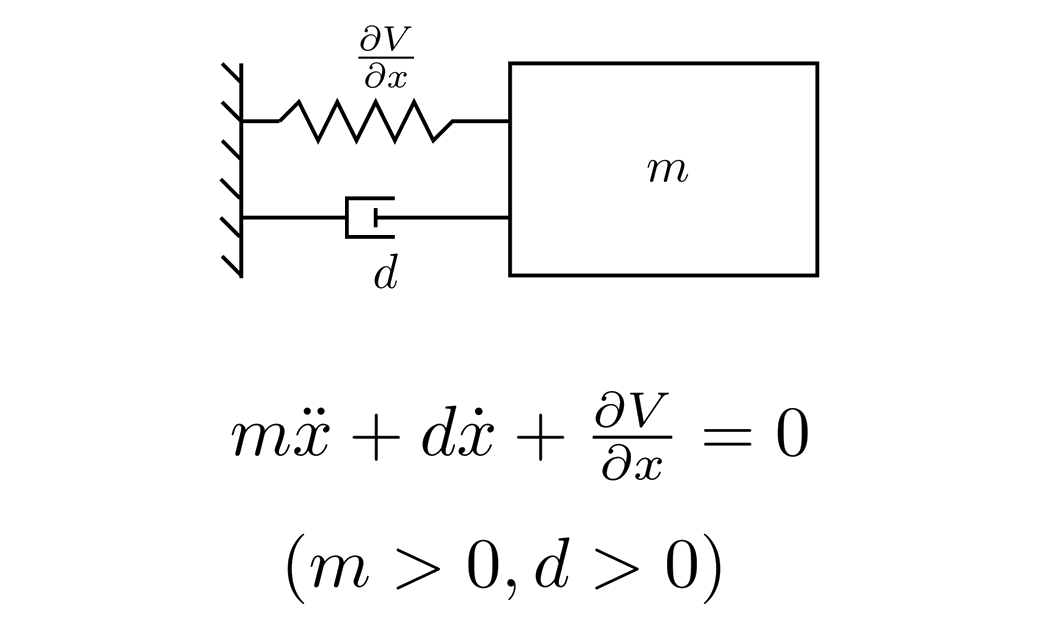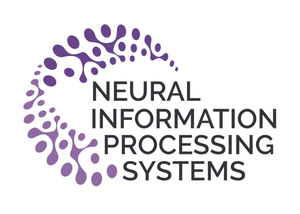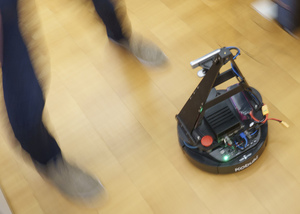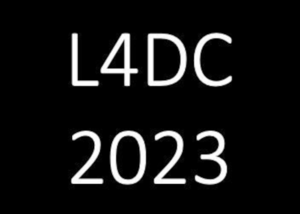
Learning and Dynamical Systems Group
Machine learning algorithms, which aim at extracting and recognizing patterns from observed data, will play a central role for enabling robotic systems that efficiently and seamlessly adapt to changing environments. While current supervised learning techniques have been very successful at tasks such as image recognition, speech recognition, or personalized recommendations, their extension to cyber-physical and robotic systems leads to many challenges. A promising approach to deal with these challenges is to incorporate the wealth of a-priori known structure that many robotic and cyber-physical systems have, such as approximate models based on first principles, symmetries, and invariants. This could improve the sample complexity, ensure that the predictions generalize to unseen situations, and could also facilitate down-stream tasks.
At the Learning and Dynamical Systems Group we seek to extend techniques from machine learning, dynamical systems, and control theory for enabling future cyber-physical and robotic systems. While rigorous theory and mathematical analysis forms the basis of our research, we also evaluate our methods in experiments on real-world systems.
The Learning and Dynamical Systems Group is an independent research group funded by the Emmy Noether Fellowship and the Branco Weiss Fellowship.
Selected recent publications:
H. Ma, D. Büchler, B. Schölkopf, M. Muehlebach, "Reinforcement Learning with Model-Based Feedforward Inputs for Robotic Table Tennis", Autonomous Robots, 2023, https://link.springer.com/article/10.1007/s10514-023-10140-6
P. Kolev, G. Martius, M. Muehlebach, "Online Learning under Adversarial Nonlinear Constraints", Advances in Neural Information Processing Systems, 2023, https://arxiv.org/abs/2306.03655
A. Das, B. Schölkopf, M. Muehlebach, "Sampling without Replacement Leads to Faster Rates in Finite-Sum Minimax Optimization", Advances in Neural Information Processing Systems, 2022, https://arxiv.org/abs/2206.02953
M. Muehlebach and M. I. Jordan, "On Constraints in First-Order Optimization: A View from Non-Smooth Dynamical Systems", Journal of Machine Learning Research, 2022, https://arxiv.org/abs/2107.08225
M. Muehlebach and R. D'Andrea, "A Method for Reducing the Complexity of Model Predictive Control in Robotics Applications", IEEE Robotics and Automation Letters, 2019, https://arxiv.org/abs/1903.07648
We are actively looking for talented and motivated students. We have several projects available that are suitable for master's theses/internships or PhD theses, see here.
When applying for a Ph.D. position you will be asked to include your CV, bachelor’s and master’s transcripts, a one-page letter of motivation describing your research interests and educational background, and two references that can be contacted for requesting reference letters. Incomplete applications will not be considered.
Past Projects
These are past projects that Michael Mühlebach did during his postdoctoral research with Michael I. Jordan and his Ph.D. research with Raffaello D’Andrea.
Understanding Nesterov Acceleration

The aim of the project was to investigate fundamental trade-offs in first-order optimization algorithms from a dynamical system’s perspective. In addition to providing important intuition, the fundamental research rigorously explains various phenomena such as acceleration, without resorting to convexity. A summary of some of the results can be found in our JMLR article.
Flying Platform
The Flying Platform was designed to study ducted fan actuation. It was also used for benchmarking novel control strategies that account for actuation limits. Control algorithms explicitly accounting for these limitation can provide larger stability margins and other performance enhancements. A summary of some of the results can be found here.
The Cubli
The Cubli is a balancing robot that can balance on its corner and jump up. We investigated the dynamics, and implemented and tested a nonlinear controller. We also designed the learning algorithm that enables the system to adapt to a changing environment. A summary of the results can be found here.









